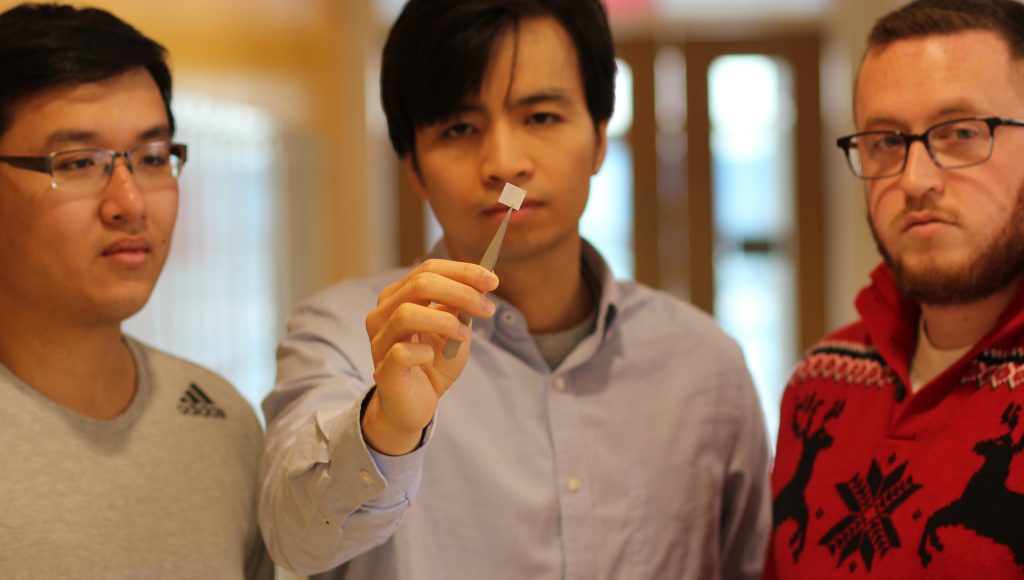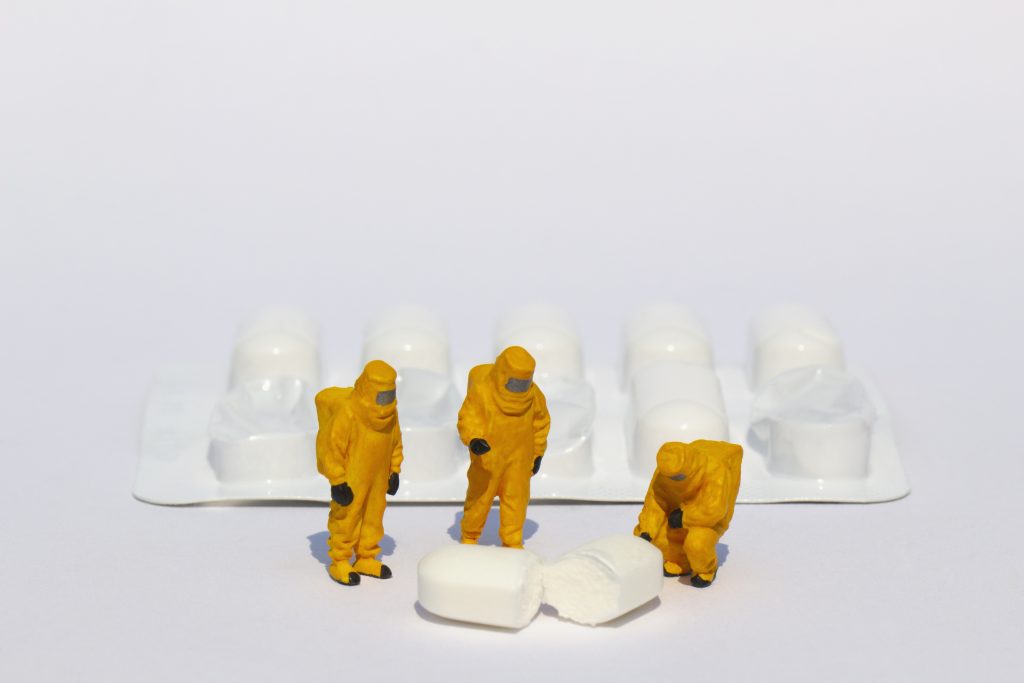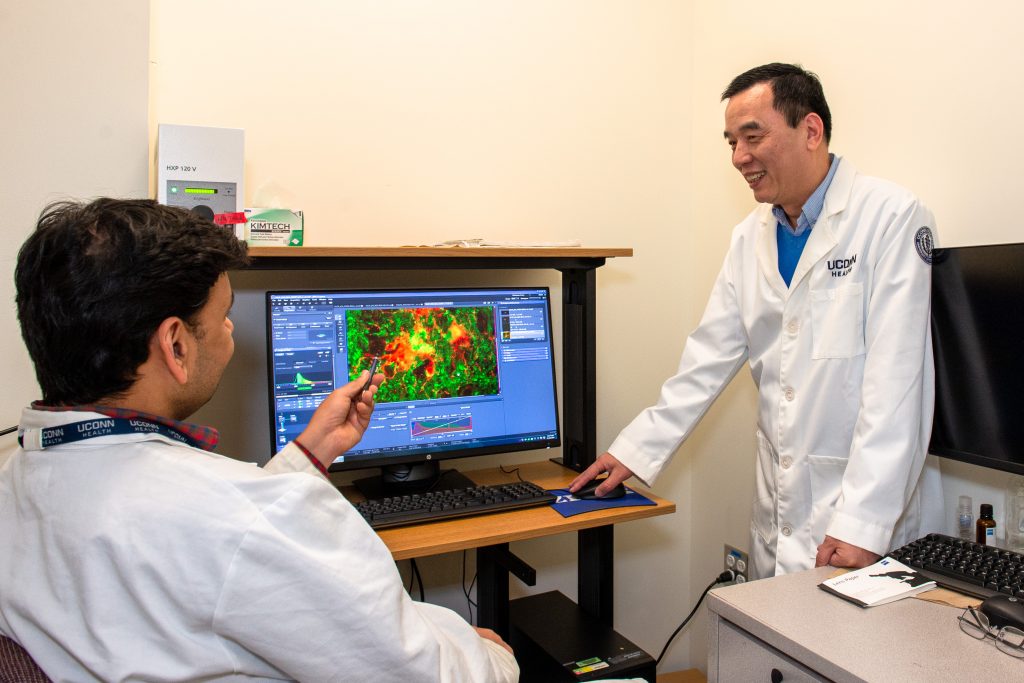Health & Well-Being
UConn Students Behind New State Law to Help Verbally Impaired
Materials from students in the UConn Center for Excellence in Developmental Disabilities are helping emergency responders communicate.
January 9, 2020 | Chris DeFrancesco '94 (CLAS)
Buzzing Through the Blood-Brain Barrier
UConn researchers are developing technology that could make it easier to treat diseases of the brain, thanks to vibration.
December 30, 2019 | Kim Krieger
Virtual Resource Helps Older Adults Find Their Place
A new web resource helps older adults navigate the sometimes confusing world of long-term care.
December 26, 2019 | Anna Zarra Aldrich '20 (CLAS), Office of the Vice President for Research
Ketogenic diet protects fruit fly brains from concussions
An experiment with fruit flies may hint at potential treatments to prevent brain damage after concussions.
December 23, 2019 | Kim Krieger
Popular Gyms Undermining Health with Tanning Beds, UConn Researcher Says
Three popular national gyms are putting a 'health halo' on a dangerous practice by offering tanning beds to customers, UConn researchers say.
December 20, 2019 | Jaclyn Severance
Op-ed: Why Your Generic Drugs May Not Be Safe and the FDA May Be Too Lax
A UConn School of Pharmacy researcher's work raises troubling questions about the safety of generic prescription drugs consumed in the United States.
December 18, 2019 | C. Michael White, UConn School of Pharmacy
Mighty Mice Head to Space on Important Health Mission
Some tiny but mighty astronauts are headed into space as part of a research project into muscle and bone loss being undertaken by UConn Health, The Jackson Laboratory for Genomic Medicine (JAX), and Connecticut Children's.
December 5, 2019 | Lauren Woods
UConn and Yale Researchers Draw an Evolutionary Connection Between Pregnancy and Cancer Metastasis
Pregnancy might hold the key to understanding how cancer metastasizes in various mammals - including humans, according to UConn and Yale researchers.
December 5, 2019 | Courtney Chandler
Splicing factor to blame in triple negative breast cancer
Splicing factors, comparable to gene editors in our DNA, could hold the key to treating the worst type of breast cancer.
November 26, 2019 | Kim Krieger
Meet the Researcher: Riqiang Yan, Neuroscience
Riqiang Yan initially started out researching in a different medical specialty altogether, but after turning his attention to Alzheimer's disease has become one of the world's preeminent experts on the illness.
November 25, 2019 | Anna Zarra Aldrich '20 (CLAS), Office of the Vice President for Research









